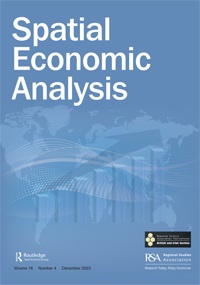
Lo más reciente
We study the relationship between academic performance of students in higher education and the decision to migrate. We focus on the case of Colombia due to the good availability of data on standardised tests for students in higher and secondary education. We exploit this information following an empirical strategy that allows us to identify the existence of negative effects associated with the decision to migrate, controlling for potential academic benefits of migration, such as belonging to better social networks in the receiving cities of migrants. These negative effects are associated with the psychological and financial costs that students face when migrating. Similarly, we follow a novel strategy by controlling for potential commuter students who are not identified in the sample, or who may be misclassified as migrants. These robustness exercises show that the result found previously is maintained, which is favourable to the hypothesis of the existence of negative effects associated with migration on academic performance. This result is relevant for the elaboration of educational policies in developing countries.
 Carabali Jaimee,
Carabali Jaimee,  Alex Péreza,
Alex Péreza,